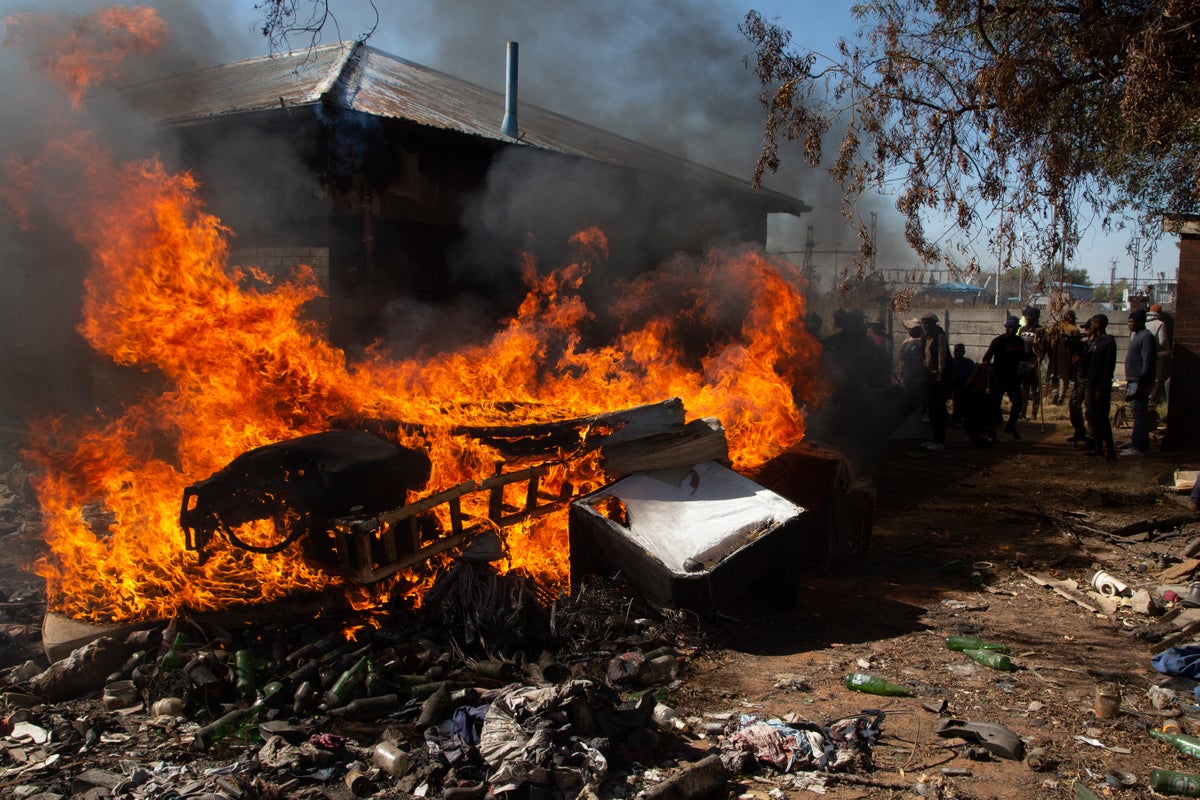
Violence against illegal miners in South Africa spread Friday despite calls for restraint from the country's president, following the arrests of more than 80 men, some thought to be miners, over the gang rapes of eight women last week.
Miners' camps were torched and roads around the townships of Munsieville and Bekkersdal outside the town of Krugersdorp, west of Johannesburg, were barricaded with rocks and burning tires as residents protested against the presence of illegal miners. Many of the miners are migrants from other African countries, and the violence has raised concerns over xenophobia.
Police said eight women were raped on July 28 when a television crew filming a music video at a mine dump in the township of West Village near Krugersdorp was attacked by heavily-armed men, some thought to be illegal miners. Police said they were investigating 32 counts of rape.
Local residents enraged at the incident torched illegal miners' camps in the neighboring Kagiso township on Thursday, and attacked miners whom they stripped naked and beat before handing them over to the police.
South African President Cyril Ramaphosa on Friday condemned the violence in Kagiso.
“We need to distinguish between legitimate protest and criminality, addressing the concerns and grievances of communities while acting to prevent loss of life and destruction of property," he said.
“We can all understand the public outrage in Kagiso sparked by the gang rape of eight young women last week and we all deeply and sincerely share in the pain of the victims, their families and the neighboring communities,” Ramaphosa added.
Kopanang Africa, an advocacy group against xenophobia in South Africa, has warned that the recent events in Krugersdorp were dangerously fueling anti-migrant sentiment.
“Unfortunately, because some of ... the illegal miners would be undocumented migrants, this has created an element of xenophobic politics where people say all illegal immigrants must go and all foreigners must leave the country,” said Kopanang Africa spokesman Dale McKinley.
He said some people were taking advantage of the legitimate concerns of the community to further their own agendas.
“When the protests started, we started seeing political formations that have clear xenophobic policies taking advantage and making irresponsible and immature statements for their own purposes," he said.
Researcher and analyst Ziyanda Stuurman told The Associated Press that communities’ frustration at the deterioration of policing and their living conditions contributed to their anger.
South Africa suffers from rising poverty levels, 35% unemployment, an electricity crisis and stagnant economic growth.
“People are living in incredibly tough economic conditions and they feel desperately unsafe, and an issue like this sparks those emotions that have been there for a very long time,” Stuurman said.
She likened the situation to the social unrest and riots in South Africa in July last year, where more than 400 people in KwaZulu-Natal and Gauteng provinces died.
South Africa’s national police commissioner and other senior government officials are expected to hold large community meetings in Kagiso and Krugersdorp over the weekend to discuss illegal mining and crime in the area.







